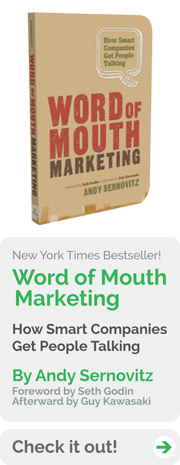10:15 — Kurt Vanderah introduces GasPedal‘s Andy Sernovitz.
10:16 — Andy: This is our safety talk, our “not screw up” talk.
10:18 — Andy says there’s a bigger purpose to this. Trust is what makes word-of-mouth work. It’s what makes social media work. You can’t start a program without people trusting you.
10:19 — Andy says ethics is not an add-on.
10:20 — Andy: It comes down to disclosure. It’s easy to do and the more you disclose, the more effective your marketing becomes.
10:21 — Andy: What’s new is that disclosure is now the law. It’s not up to debate anymore since the FTC guidelines came out.
10:22 — Andy: There is nothing new in the FTC guidelines. It’s always been illegal to pay people to shill for you. We’ve always known it’s wrong. You don’t want to be the person to walk into your boss’s office and say, “Oh, we just got into this little blogging spam scandal…”
10:23 — Andy: FTC gave us three simple steps.
10:23 — Andy: The first thing is to require disclosure and truthfulness in social media outreach.
10:23 — Andy: The second rule is to monitor the conversation and correct misstatements.
10:24 — Andy: The third is to create social media policies and maintaining programs. The FTC said if you have a policy and training program, your company is protected should you have a rogue employee.
10:25 — Andy says to stay safe, never pay cash. High risk comes when money changes hands. Once people find out you’ve paid for word-of-mouth, they will never trust you.
10:26 — Andy: There’s this idea of real disclosure. It’s not about putting it on the about page of your blog, hidden somewhere. Disclosure is to be obvious and apparent. It needs to be clear and conspicuous and understandable by the average reader.
10:27 — Andy: Don’t lie to your mom.
10:27 — Andy says the ten magic words are: I work for _____, and this is my personal opinion.
10:28 — Andy says there are deeper levels of disclosure: who you are, were you paid, and is it an honest opinion based on a real experience?
10:29 — Andy: Biggest risk is the failure to train. Most companies don’t set out to do a stealth marketing campaign, but sometimes mistakes happen– a junior staffer who doesn’t understand the different rules in using Facebook for a company versus personally, etc. The best thing to do is to create a policy and train your employees.
10:31 — Andy: the Social Media Business Council has developed a disclosure best practices toolkit.
10:31 — Andy: Be careful who you hire. The FTC has said the client is responsible for the agency they hire if that agency crosses the line.
10:32 — Andy: We have a chance to do something good.
10:33 — Andy: I’m calling on you to raise your standards.
10:34 — Andy: Save your brand, save your reputation, and save your job.
10:35 — Andy: If you have to ask, the answer is no. It’s easier to be honest.
10:35 — Andy: Pass it on.
Q&A
Q: I’m grappling a lot with this disclosure. I find myself constantly in this cobweb of mess. How do you say this without looking like a pompous ass? It’s a little crazy.
A: The goal is not to go overboard with crazy disclosure. The FTC doesn’t want to bust you for not saying anything. What they’re looking for is large, systemic problems like a company recruiting 5,000 people without letting anyone know that those 5,000 were paid for to say good things about them.
Q: But journalists don’t disclose that they are given the things they review.
A: There isn’t a double standard. There is an assumption that the journalist doesn’t get everything they review for free. Journalistic standards have also fallen a bit. FTC says we can’t lower standards across the board. The average consumer has to understand who is paid and what the relationship is.
Q: Where does demand media fall in the ethics issue? AOL is saying they’re going to build ad-driven content.
A: As long as it’s clear what the ad is versus the content. The short answer is: an ad should look like an ad.
Q: Can you say more about the fine you mentioned in New York state?
A: Two months ago, New York found this diet company and how they had employers write fake endorsements for their product. Just because these took place on a blog doesn’t mean it’s any less illegal. This has always been illegal, so they were smacked with $300,000.
Q: The concept of clear and conspicuous– do you have suggestions for doing this in an area like Twitter?
A: It’s harder there because you only have 140 characters, and then you have ReTweet where the message may get lost. There will probably be a standard like a hashtag.
Q: Where do we go for legal advice?
A: Go to socialmedia.org; we’ve put everything we have there for free. But remember: if you have to ask, then you’re probably over the line. There’s no upside in playing the gray area.



Trackbacks/Pingbacks
[…] How to Stay Out of Trouble: WOM Ethics, Policies, and Training — with GasPedal’s Andy Sernovitz […]
[…] How to Stay Out of Trouble: WOM Ethics, Policies, and Training — with GasPedal’s Andy Sernovitz […]